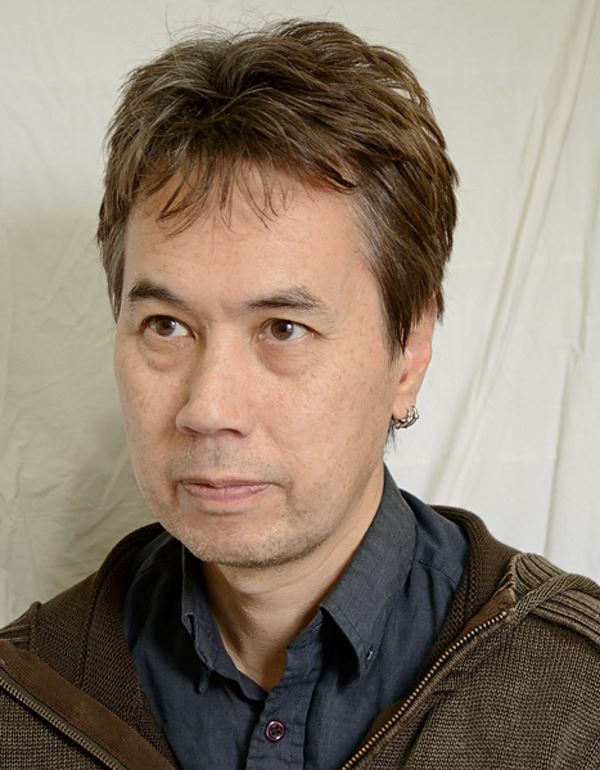Rich Cutler

Why did you choose an editorial career, and how did you get into it?
Like many in the CIEP, I was drawn to publishing because I love books! When I discovered what a desk editor did, I knew the job would suit me perfectly – combining my interest in language and my proclivity for design and things technical. It was the 1980s, and publishers were keen to employ science graduates and offshoring was in the future, so there were plenty of jobs around: I simply applied for one I liked the look of, and got the position. My eventual plan was to start my own business, which I did: Helius.
What training have you done to get your editorial career up and running?
When I started in publishing I was given comprehensive editorial training – partly because tasks that are typically outsourced today, such as copyediting, proofreading and book design, were, back then, often done in house. In addition, I learned how to manage several titles simultaneously and about all aspects of the production process – I especially enjoyed visiting typesetters, printers and paper mills. It was in many ways like an apprenticeship. Today, as a freelancer, CPD is crucial – and here the CIEP is vital for me (I find its conferences especially useful).
What work are you most proud of?
I like difficult jobs, as I relish the challenge and the opportunity to apply all my skills and experience. If I had to choose one job that I'm most proud of, it would be the Collins English Dictionary: I used to be a lexicographer, and I was commissioned to check all the physical science definitions, which involved updating or deleting existing entries and writing new ones – I had sole responsibility! This was in the early 1990s, and I used blank postcards spread across the living room floor (personal computers had yet to become commonplace)!
What do you do if you're struggling on a job?
If I encounter something that affects the client, I tell them immediately and suggest solutions. I work with another freelancer (we trade collectively as Helius), and one of the many benefits is sharing – and solving – problems. Also, the CIEP forums are an invaluable source of advice.
What does being a member of the CIEP mean to you?
The CIEP is a fantastic resource for work-related stuff, and is key for my CPD. It's also a badge of recognition: clients know that Advanced Professional Members – like myself – can be trusted to deliver a high standard of work, on time and to budget. Last but not least, the Institute has a social role: self-employment can be isolating, but being a member of the CIEP puts me in touch with like-minded people.
Which editorial tasks do you enjoy the most and why?
I prefer jobs that involve a mix of things – doing one task for too long can leave me jaded. I especially enjoy project management because of the variety of tasks involved, particularly if I also get to do the copyediting and typesetting. I like the control and efficiency this offers, and it is very satisfying to produce an entire book from start to finish. Also, one hat I wear is that of a proofreading tutor, and I find it fulfilling to pass on the skills I've learnt.
Do you have any editorial pet hates?
I have a few perennial peeves, and at the top of my list are jobs put into production before they're ready that are full of all kinds of pitfalls and bear traps when I assess them (the first thing I do when considering whether to accept a job): on a few occasions these have been so serious that I've turned down the job! I'm also irritated by poor briefs and inadequate budgets.
What has most surprised you about your editorial career?
The only equipment I needed when I began my publishing career was a set of red, blue and green pens: I could never have predicted how much technology would impact the industry. Today, my job would be impossible without a computer, and, as I type this, I am sitting in front of a bank of three screens surrounded by a plethora of electronic devices! I am also aware of how broad my skills have become over the years.
What's the best career advice you've received?
Always remember you're a business, and act accordingly.
What advice do you have for people starting out on an editorial career?
Networking with other editorial professionals is a must – join the CIEP! Being an editor or proofreader is not just about words – as well as honing business skills such as administration and marketing, you need to know a little about everything that's involved in publishing, from commissioning to graphic design to technical processes such as typesetting and printing.
Do you ever stop editing?
Sadly, no. I'll be staring at a misspelling in the menu when everyone else is ready to order!
Finally, tell us one thing about you not related to editing
I'm a contemporary photographic artist, and my work has been published and exhibited widely. If you're interested in knowing more, visit my website: www.richcutler.co.uk.
The CIEP does not give any special endorsement to the members who appear in Meet our members. If you are looking for an editorial professional, we recommend you search the Directory of Editorial Services.
